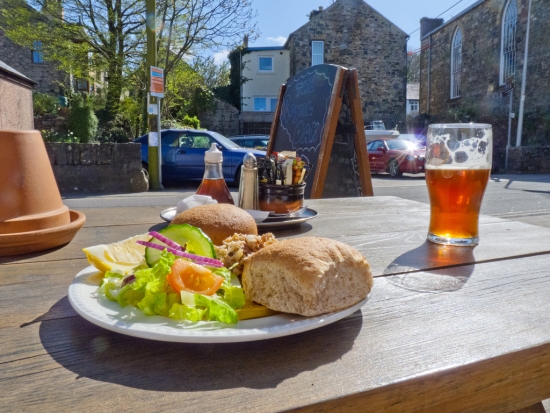The pub industry has suffered in recent years, with the number of daily closures of both independent and chain bars outstripping even high street casualties. In fact, the problem has become so severe that groups such as the Campaign for Real Ale (CAMRA) warned the damage to one of Britain’s most traditional industries could well prove to be irreparable.

Fortunately, the summer sun appears to have lifted the dark clouds from three major pub and bar chains. Marston’s, Mitchells & Butlers and Fuller, Smith & Turner have all experienced stronger sales in recent weeks.
Pitcher & Piano owner Marston’s reported a 6 per cent rise in like for like sales for both its “destination” and “premium” venues in the 10 weeks to July 20th. This compares extremely favourably to the same period in 2012, when wet weather during April, May and June kept consumers indoors and considerably affected sales.
Mitchells & Butlers, meanwhile, noted a like for like sales boost of 1.6 per cent in its All Bar One and O’Neill’s outlets during the third quarter. While this may not be an exceptional rise, this climbed to 2 per cent in the final nine weeks of the quarter, indicating that consumers took advantage of the sunshine to flock to their nearest beer gardens.
Chief executive of Mitchells & Butlers Alistair Darby pointed out that “the cash in people’s pockets remains tight”, yet was pleased to report that profit margins for the chain, which operates 1,600 venues overall, remain well above the figures recorded last year.
Finally, brewer and pub operator Fuller, Smith & Turner recorded a 10 per cent increase in like for like sales in the 16 weeks to July 20th. Additionally, the group has taken advantage of the clear skies to make essential repairs to many of its commercial properties, thus maximising the benefits brought about by the hottest summer since 2006.
Chief executive Simon Emeny said; “After several weeks of barbecue summer weather, it is pleasing to see customers coming to our pubs and gardens to enjoy our food, drink and hospitality.”
Industry experts are now hoping that the recent run of good results can partially make up for those recorded at the beginning of the year. The snow flurries which hit various parts of the UK in January and March caused beer sales to dip by 2.9 per cent in the first three months of the year according to the British Beer and Pub Association.
With the sunshine set to continue, albeit mixed with some rainy spells, pub landlords will undoubtedly be looking to profit from crowded beer gardens for some time to come. Hopefully this will play a prominent role in rejuvenating the British pub trade and stemming the losses suffered by towns throughout the recession.
Do you tend to visit the nearest beer garden when the sun is out, or do you prefer buying in bottles from the supermarket to enjoy with a barbecue in your own garden?
Previous Post
Government Underestimates Digital Economy